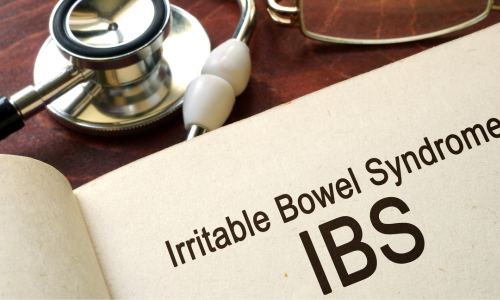
ARE PROBIOTICS EFFECTIVE FOR IRRITABLE BOWEL SYNDROME (IBS)?
From work to daily life, irritable bowel syndrome (IBS) can disrupt and cause discomfort. Probiotics may help alleviate IBS symptoms, but which probiotic supplements should you trust?
WHAT IS IRRITABLE BOWEL SYNDROME (IBS)?
IBS symptoms affect approximately 1 in 5 people in the UK at some point in their lives.
Triggers include certain foods, stress, infections, and heightened pain sensitivity. Common symptoms include abdominal pain, bloating, diarrhea, or constipation.
If left untreated, these symptoms can interfere with daily life, including work and personal relationships.
While the exact cause of IBS remains unclear, experts believe it involves gut function irregularities. Dr. Nirusa Kumaran, a general practitioner and functional medicine specialist, explains:
"Research has identified three potential factors contributing to IBS symptoms:"
- Imbalance in the gut microbiome: The collection of microorganisms in the digestive system.
- Disruptions in the gut-brain connection: The bidirectional communication between the gut and brain through nerves, hormones, and chemical signals.
- Increased gut permeability: Allowing harmful substances to pass through the intestinal lining.
ARE PROBIOTICS BENEFICIAL FOR IBS?
A 2020 review of 28 studies involving 3,606 participants suggested that probiotics may improve overall IBS symptoms. Similarly, a 2015 study of 1,793 participants found that probiotics reduced abdominal pain, bloating, and flatulence.
Not all probiotics on the market have undergone rigorous clinical trials, but several indicators can help identify high-quality products.
WHICH PROBIOTICS ARE BEST FOR IBS?
Evidence suggests that certain probiotic strains are particularly effective for IBS. Two major probiotic groups for IBS are:
- Bifidobacterium: Includes strains like Bifidobacterium bifidum, shown to significantly alleviate IBS symptoms such as abdominal pain, bloating, and diarrhea.
- Lactobacillus: Includes strains like Lactobacillus acidophilus, which help reduce abdominal cramps.
CHOOSE HIGH-QUALITY PRODUCTS
If purchasing probiotic supplements independently, prioritize high-quality, clinically tested products. Consider the following factors:
- Colony-forming units (CFU): Most probiotics contain at least 1–10 billion CFU per dose.
- Composition: Does the product include strains specifically studied for IBS?
- Clinical Trials: Randomized, double-blind, placebo-controlled trials are ideal.
- Third-party Testing: Look for products tested by independent labs, a reliable indicator of quality.
HOW LONG SHOULD YOU USE PROBIOTICS FOR IBS?
Probiotic treatment for IBS requires patience. A 2019 study found that it takes an average of eight weeks or more to notice health benefits.
The National Institute for Health and Care Excellence (NICE) recommends using the same probiotic brand for at least four weeks at the manufacturer’s suggested dose.
Long-term probiotic use for IBS is considered safe. While more research is needed on prolonged use, no evidence suggests it causes harm over time.
References:
Probiotics for IBS: Do They Work?
